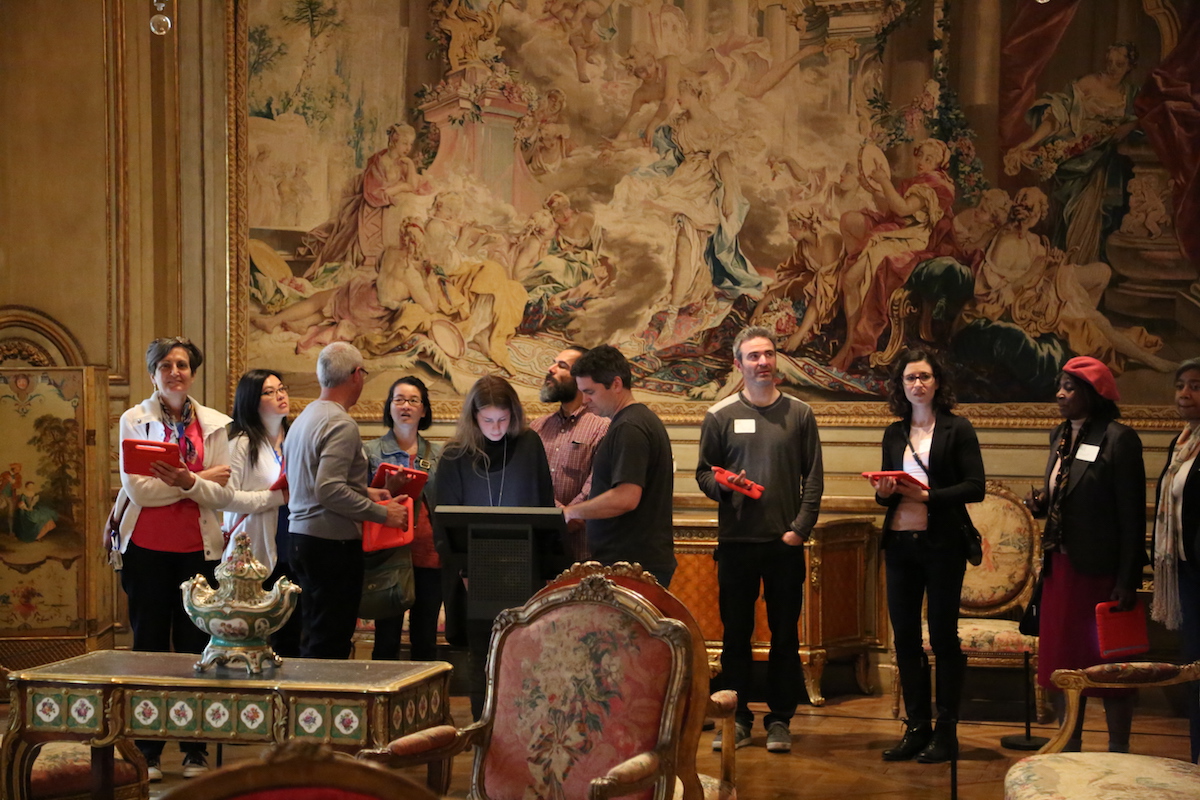The Philadelphia Museum of Art spent three months developing its new interactive iPad app and it’s nothing short of magical.
At first glance you might think it’s just another ploy to get people in the door. But once you actually get your hands on it, you will quite literally see a whole new artistic point of view.
When you first open the app, you get a map of the museum, so you always know where you are, and you know where everything is, so you won’t get lost. Next, the art museum installed 280 iBeacons all around the art museum that are continuously broadcasting a signal. The signals not only direct you (kind of like a treasure hunt), but they also tell you which items have more information available within the app.

For example, one tour group stopped by a large Picasso painting of musicians, and the app immediately showed the painting as well as more information. It then had a notification saying to play the music, and when the visitors clicked play, they could hear what the painting would have sounded like when Picasso painted it.

It’s fully immersive, both in sight and sound.

On average, a patron will spend roughly two minutes per item in the app learning about it. Instead of just looking at items, now you can actually learn about them. There is also a hint of gamification in the new app.
For example, you can unlock achievements for finding certain things. At one point, the tour group had to find a large blue section with a white X. They ended up having to find it on the ceiling with no help from the tour guides.


“This is a way to make the museum more of a social gathering,” said interactive developer Peter Alt. “This isn’t a library, we want people to talk and interact. And what better way but by using sound, visuals and more in-depth information all in a fun and unique app?”
This new interactive experience isn’t the only thing the museum is working on. It’s also in the middle of some pretty intense endeavors. One being a platform called “Apollo,” which lets you see objects in new ways (think: X-ray and underpainting, conservation, comparisons and close-ups). It will also feature more in depth descriptions and American Sign Language support.
This is a way to make the museum more of a social gathering.
Museum officials have also been working in Mexico City on a mural program. Using touchscreen capabilities, life-size projections and high-end videography, they are capturing hundreds of murals at schools, buildings and other important sites.
Lastly, the museum is experimenting with hackathons. It hosted its first coding event in March, and organizers are hailing it as a success. Participants were given access to over 5,000 museum collection objects, the 280 iBeacons, PMA staff and a toolkit.
On balance, it’s another attempt to marry technology and art — a goal that museum officials hope to achieve, characteristically, with taste and beauty.








